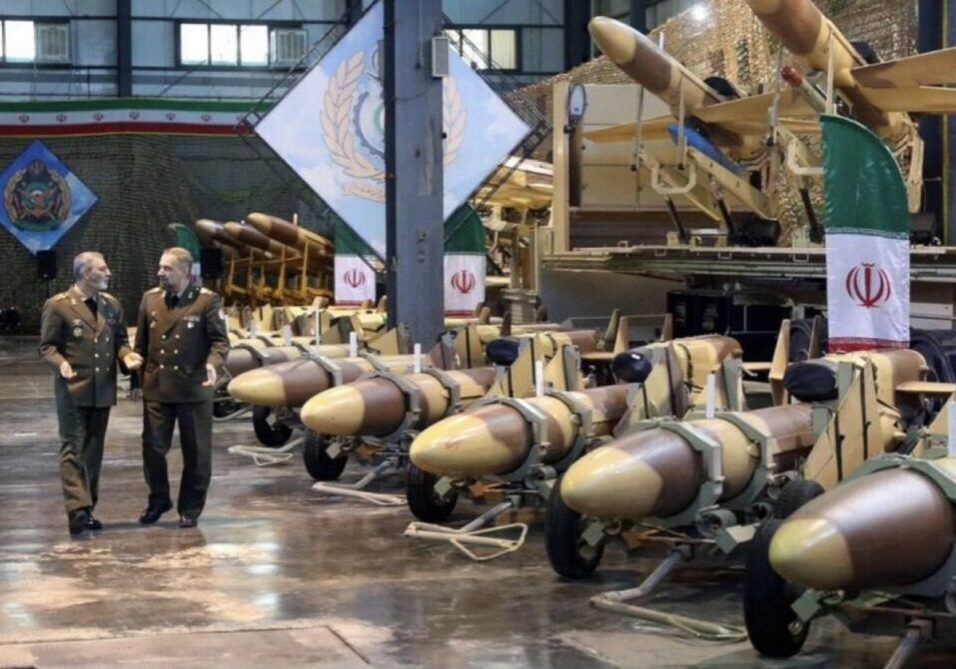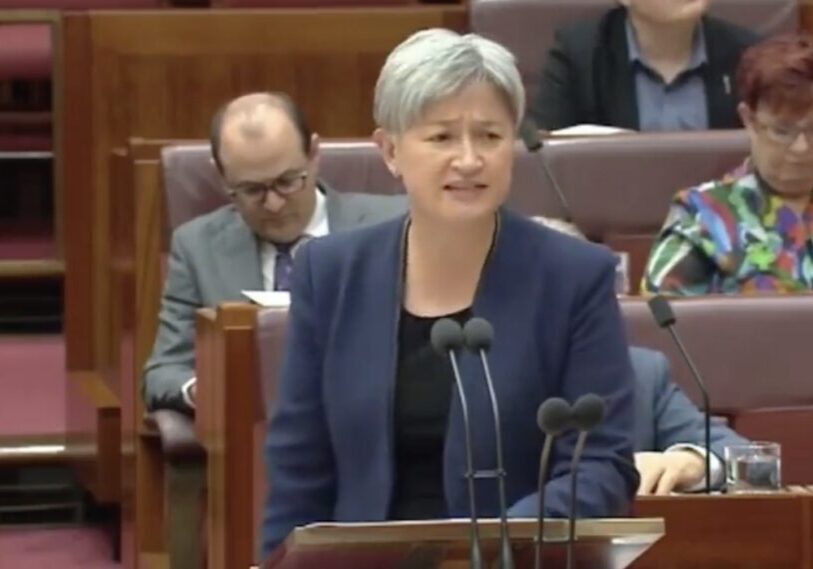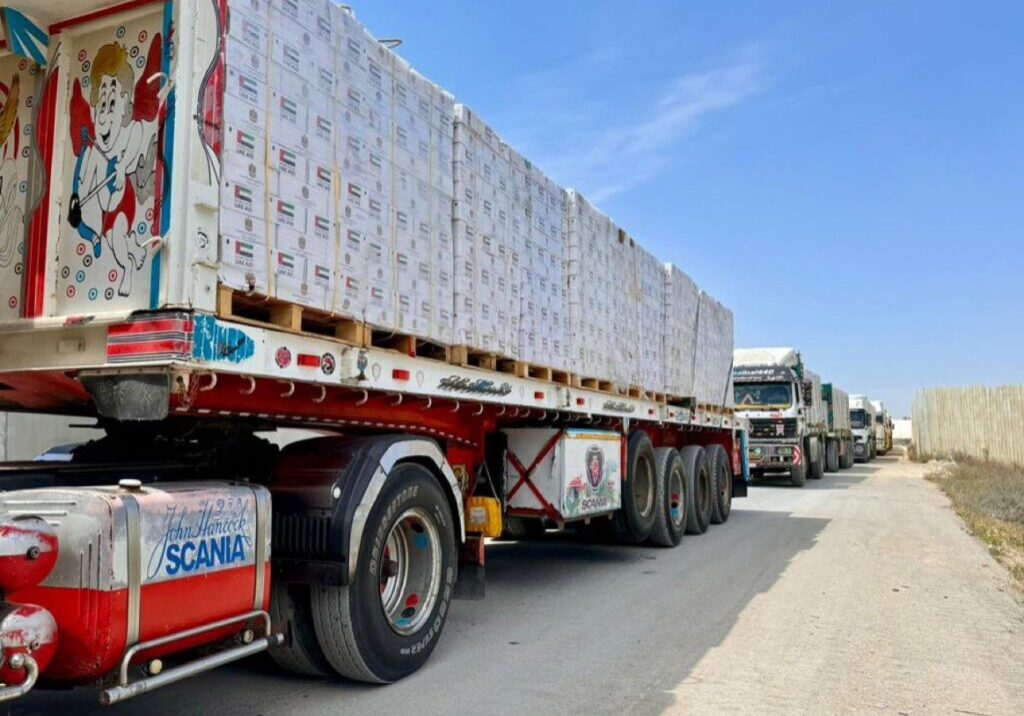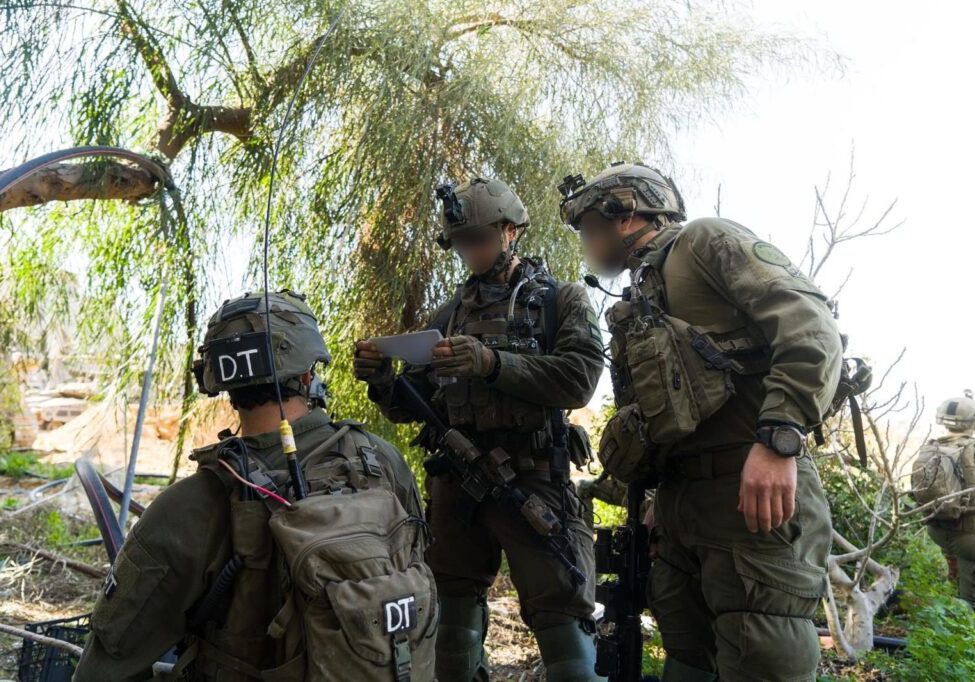Australia/Israel Review
Noted and Quoted – July 2017
Jul 6, 2017 |

You must be kitten
In the Hobart Mercury (June 5), anti-Israel pundit Greg Barns called Hamas comparatively “a cuddly kitten” and questioned why it is a “criminal offence in Australia” to support it, yet “it is not a criminal offence for the Australian Government to sell arms to Saudi Arabia, which is the most prolific state sponsor of terrorist activity globally.”
He described Hamas as an organisation “borne [sic] out of the struggle by the Palestinian people for a homeland,” and said it is “hard to condemn any Australian from [sic] verbally or in writing supporting Hamas… when our politicians cosy up to their vile chums in Riyadh.”
According to the US State Department, Iran is still the world’s leading sponsor of terrorism, not Saudi Arabia.
But regardless of Saudi Arabia’s own behaviour, Hamas calls for genocide against Jews as a religious imperative, commits war crimes by firing rockets at Israel’s civilian population whilst using its own citizens as human shields, and openly advocates and organises terror attacks against civilians, which entirely justifies its inclusion on the list of proscribed terror groups.
Medical negligence
The Australian Financial Review (June 2) ran a lengthy Washington Post report on the difficulties Palestinians face in receiving adequate medical treatment in Gaza or in the Palestinian Authority on the West Bank and the red tape involved in gaining permits and negotiating checkpoints to obtain high quality treatment in Israel.
The article conceded that Palestinians face no discrimination in Israeli hospitals and that Israel “has faced rockets and three wars with the Islamist movement Hamas in Gaza, whose members deny Israel’s right to exist. Israelis endured two Palestinian uprisings, the second marked by suicide-bomb attacks against civilians. More recently there was a wave of knife and vehicular assaults. Thousands of Israelis have died in Palestinian attacks. This is why Israelis say they need walls and permits.”
But there was little doubt that the authors blamed the occupation – with the implication that Palestinians would maintain their own world’s best medical system if there was no occupation.
The piece questioned Israel’s “generosity” in allowing Palestinians to receive medical treatment in its hospitals because it is “the Palestinians, or their American and European patrons, [who] pay for” the treatment.
What was not mentioned was that in the two decades since it was established, Palestinian Authority officials have been involved in widespread corruption involving international aid and have also prioritised rewarding terrorists and their families over state building. Similarly, Hamas has diverted aid to its military infrastructure.
In April, a woman entering Israel from Gaza for cancer treatment was arrested with her sister after Israeli soldiers found explosives hidden in medicine containers. The article did not mention this.
Pappe smears
Anti-Zionist Israeli-born pseudo-historian Ilan Pappe astounded ABC Radio National “Religion and Ethics” host Andrew West (May 31) with many of his claims, including a suggestion that solving the Israeli-Palestinian conflict through a binational state would end most of the Middle East’s problems.
According to Pappe, “if there is a genuine discussion about peace between Israel and the Palestinians, there is going to be a dramatic change in the power of Islamic groups in the Middle East… Palestine is a huge issue that explains a lot of the unrest and therefore a dramatic change in the international community perspective on the Palestinians’ basic rights, on a change in the reality on the ground, would render any discussion about whether the [sic] Hamas is a danger from the hills of the West Bank or not, redundant.”
West asked, “are you saying that ISIS would stop slaughtering people who have nothing to do with Judaism if the Palestine-Israel question were settled?”
Pappe said he was, claiming that a genuine discussion about regional civil and human rights cannot take place if one country’s human rights abuses are exempted. He said in a binational state Israelis would enjoy security, but only when “they share the country on [an] equal footing with the native indigenous population of Palestine. We have to remember, the Jews are the settlers. It’s a settler, colonialist movement.”
Gob-smacked, West replied, “hang on a minute. Half the population of Israel is also Jews who were expelled, 850,000 to a million, who were expelled from the Middle East, forcibly expelled, that’s in addition to the children and grandchildren of the Shoah generation” and asked if Pappe was claiming that Jews have no connection to the land.
Pappe said that Jews from Arab lands are still settler colonialists and said the Jewish connection to the Holy Land no more gave them a right to settle there than the Crusaders had a right through their Christian connections “to overtake the Holy Land”.
In staking out his extreme position, Pappe made a series of factually inaccurate claims, too many to debunk here.
No missing link
In the Spectator (June 17), Executive Council of Australian Jewry’s Alex Ryvchin attacked politicians and media personalities who link the Israeli-Palestinian issue with other conflicts playing out in the wider Middle East and beyond.
“The rise of Islamic State in Libya, Syria and Iraq, the hegemonic designs of Iran, the increasing authoritarianism of Erdogan in Turkey, violent conflict between Sunni and Shia in Bahrain, Yemen and Saudi Arabia have precisely nothing to do with Israel and the Palestinians. A peace deal… would have zero impact on the massacre of civilians on European streets, the destruction of cultural sites, the genocide of ethnic minorities or the titanic struggle between the rival successors to the prophet Mohammed that is at the heart of the Shia/Sunni schism” or the persecution of Coptic Christians in Egypt, Ryvchin wrote.
He noted that the same attitude extends to a belief that the West can negotiate with radical Islamists, describing such thinking as “sweeping arrogance and self-absorption”. He said it “foolishly assume[s] that the fundamentally unreasonable will respond to reason.”
Missing in action
Australian (June 3) journalist Richard Ferguson reported on the ABC’s failure to moderate its Facebook page after “it left up anti-Israel conspiracy theories and Hitler memes for weeks.”
This was in reference to hate-filled comments left in response to an ABC interview with Australian Israeli pediatrician Michael Harari, who works at Ziv Hospital in Safed, Israel, where wounded Syrians are treated.
Ferguson wrote that the ABC told him “its moderators focus only on ‘current posts’ and offensive comments on older posts must be reported to be taken down”. He noted that “most of the comments that alarmed Jewish leaders appeared on the day, or the day after, the articles were posted.”
AIJAC’s Colin Rubenstein was quoted calling for the ABC to do better.
Clark in the dark
Journalist Andrew Clark nominated two main impediments for Israeli-Palestinian peace.
That is, “according to the Israeli-based Peace Now movement, Israel has increased its rate of establishing settlements in the Occupied Territories by 34 per cent this year and 70 per cent of these ‘new starts’ are beyond the ‘Geneva Initiative’ border – a notional line separating any future Palestinian state from Israel. Further, some elements in the Palestinian side remain tainted with the stigma of wanting to ultimately destroy the Jewish state.”
Those “tainted” elements would include Hamas, which rules over 1.7 million Palestinians in Gaza, and are not an insignificant force in Palestinian politics.
Israel has not been “establishing settlements” – although the Netanyahu Government did announce plans to build the first new settlement since 1999 – and the Peace Now claims, which are questionable, refer to housing within existing settlements. Moreover, that growth falls overwhelmingly within existing settlements that Israel would retain in any conceivable peace deal – the Geneva Initiative borders are a long-since obsolete fringe position.
According to the article, the last serious peace talks were 17 years ago under US President Bill Clinton.
Actually, serious advances were made under George W Bush, including the 2003 Road Map for Peace and the regional Annapolis Conference in 2007 that led to Israeli PM Ehud Olmert’s 2008 offer, rejected by Abbas, of a Palestinian state most reasonable people would think meets the Palestinians’ stated objectives, Australian Financial Review (May 27).
Age-old problems
Editorialising on the Islamic State inspired London Bridge terror attack, the Age (June 6) correctly argued that “claiming the problem is Islam per se is as invalid as saying Christianity is the cause of child rape by a small minority of priests.”
Sadly, the editorial then made a clumsy and ill-informed observation which echoed old style anti-Jewish Christian dogma, which contrasted the “enlightened” New Testament with the backward and morally primitive Old Testament.
According to the paper, “the interpretation the overwhelming majority of Muslims have of the Koran is no more violent than that of the Bible by the overwhelming majority of Christians, who do not take literally brutal exhortations in the Old Testament.”
As Jewish commentaries from 2,000 years ago show, what we today might consider barbaric statements in the Torah/Old Testament, such as “an eye for an eye”, were not interpreted literally by religious leaders even then.
Not so Wonderful Woman
Fairfax commentator Ruby Hamad waded into the controversy over calls for the new superhero film “Wonder Woman” to be boycotted because its lead actor Gal Gadot is an Israeli.
Hamad wrote, “I am sympathetic to the motivations of BDS”, but counselled against a boycott because “Wonder Woman is not even an Israeli film” but “that does not mean there isn’t a discussion to be had.”
She accused Gadot of “express[ing] anti-Palestinian views”.
Gadot’s key alleged sin was the fact that she “was a vocal supporter of Israel’s War on Gaza in 2014, during which she posted online a picture of herself and her young daughter praying for the Israeli Defence Force (IDF) soldiers, ‘risking their lives protecting [her] country against the horrific acts conducted by Hamas, who are hiding like cowards behind women and children… We shall overcome!!!'”
Vocal supporter of war on Gaza? Anti-Palestinian? Looks like Gadot specifically attacked Hamas, not Palestinians, for hiding behind its own civilians whilst firing rockets at Israeli civilians – a double war crime.
According to Hamad, “since Wonder Woman’s appeal lies largely in her compassion for all victims of war, and her impatience for the oppressions of men, declaring the film an empowering message for women while ignoring Gadot’s support of the Israeli policies that leave Palestinian women disempowered is a bitter pill to swallow.”
Is Hamad suggesting that it is okay for Hamas to fire rockets at Israeli cities and that Gadot and other Israeli women should just suck it up because they are not the right kind of women? Doesn’t sound very peace-like either, more like selective compassion, Daily Life (June 8).
Careless whispers
A Fairfax/ABC TV investigation of alleged Chinese influence in Australian politics and intimidation and surveillance of dual citizens in Australia, saw the inevitable attempts to make comparisons with Jewish support for Israel.
Some of the alleged behaviour was detailed in Fairfax papers and ABC online (June 4) to include “on university campuses, in the Chinese-language media and in some community groups, the [Chinese Communist] party is mounting an influence-and-control operation among its diaspora that is far greater in scale and, at its worst, much nastier than any other nation deploys… Some analysts argue the party’s efforts are mostly benign, ham-fisted or ineffective. Former Australian ambassador to China Geoff Raby stresses that influence operations are conducted by many countries. He singles out Israel as an example.”
Writing in the Australian letters page (June 13), a supremely disingenuous Bob Carr, former Australian Foreign Minister and current Director of the Australia-China Relations Institute, wrote, “It is a curious notion that Indians and supporters of Israel can rally for a visiting PM but a similar turnout from the Chinese shows sinister forces at work.”
Carr, of course, has form in making ludicrous claims about inappropriate Jewish influence on Australian governments, but it is instructive that he thinks it appropriate to equate the leadership of a totalitarian regime with the leaders of two democracies.
On the ABC website (June 7), ANU academic Graeme Smith pointed out the differences between Israel and China, writing, “Israel is not our major trading partner. There are not one million people of Israeli descent living in Australia. Israel does not influence sea lanes to our immediate north. Israel is a democracy… Israeli citizens can choose from a range of political parties with different foreign policies. Chinese citizens cannot remove their ruling party, or even mildly rebuke it abroad.”
Not an unprecedented precedent
North Korea’s nuclear weapons belligerency in May saw AIJAC’s Colin Rubenstein warn of the need for vigilance on the supposedly curtailed nuclear program of Iran, which has “a long history of military cooperation” with the pariah Asian state.
“While it’s too late to undo the policy failures that allowed this festering crisis on the Korean Peninsula, there is still time to learn from those mistakes and apply them towards preventing Iran from crossing the nuclear threshold in the geo-strategically crucial Persian Gulf region,” he wrote.
This starts with recognising the deficiencies of the Joint Comprehensive Plan of Action signed by the P5+1 with Iran in 2015, which included “sunset clauses” that let Iran “abide by the agreement for the next decade and still breakout to build a nuclear warhead within 10-15 years.”
Further, “rather than use the economic dividend from the deal to improve the lives of Iranians or cultivate Western ties to usher in an era of prosperity and reform, Iran has instead increased its belligerency and widened its military footprint on the region…”
North Korea, he warned, has “proliferated its nuclear weapons technology to the Middle East, directly assisting Syria to build an illicit reactor, which Israel pre-emptively bombed in 2007” and “experts believe that Iran is likely to continue to advance its nuclear program outside of the gaze of international inspectors by conducting its research activities in North Korea,” Australian (May 29).
Bombs away
A surprisingly quiescent Emma Alberici let University of Teheran political analyst Mohammad Marandi get away with some absolute howlers on ABC TV “Lateline” (June 8) whilst discussing an Islamic State terror attack on Iran’s parliament and the tomb of the Islamic Republic’s founder Ayatollah Khomeini.
According to Marandi “if it wasn’t for Iran, the Islamic State by now would have taken… Syria and Iraq.”
Some would argue that if it wasn’t for Iran’s pernicious influence on the Baghdad government which pursued a pro-Shi’ite sectarian agenda, Islamic State would never have gained a foothold in the Sunni majority areas of Iraq.
Reflecting on the chaos and bloodshed in the Middle East, Marandi said, “the Iranians believe that if there’s one country in the world that’s responsible for this catastrophe that we see, and the export of terrorism across the world, it is the United States. It chooses Israel which is an apartheid regime as one ally and then it chooses Saudi Arabia which is a Wahhabi as its other ally.”
There are many regional conflicts that have no US or Israeli involvement. For instance, neither country started the civil war in Syria that has seen more than 350,000 dead.
Perhaps next time Lateline should interview an Iranian academic who is safely ensconced in the West and can depart from the government line.
Judge for yourself
A rare spotlight was shone on the multicultural nature of Israel’s democracy, as Irris Makler reported on the groundbreaking appointment of Israeli Arab Hana Khatib as the first woman to be sworn in as a judge to Israel’s Islamic Sharia courts.
Khatib, who was an Israeli family court lawyer for two decades, says her Jewish friends are happy for her and described Israel as a “modern state and a democratic state” with Arabs and Jews both facing the same challenges.
The report included comments from Aida Touma-Sliman, a democratically elected Israeli Arab member of the Knesset (Israel’s Parliament) who sits on the Committee on the Status of Women and Gender Equality and pushed for the inclusion of a woman in the Sharia court.
The appointment of a woman to an Islamic court is groundbreaking in that it precedes that of a Jewish woman being appointed to a Rabbinic court, ABC Radio National “Religion and Ethics Report” (May 17).
Tags: Australasia






